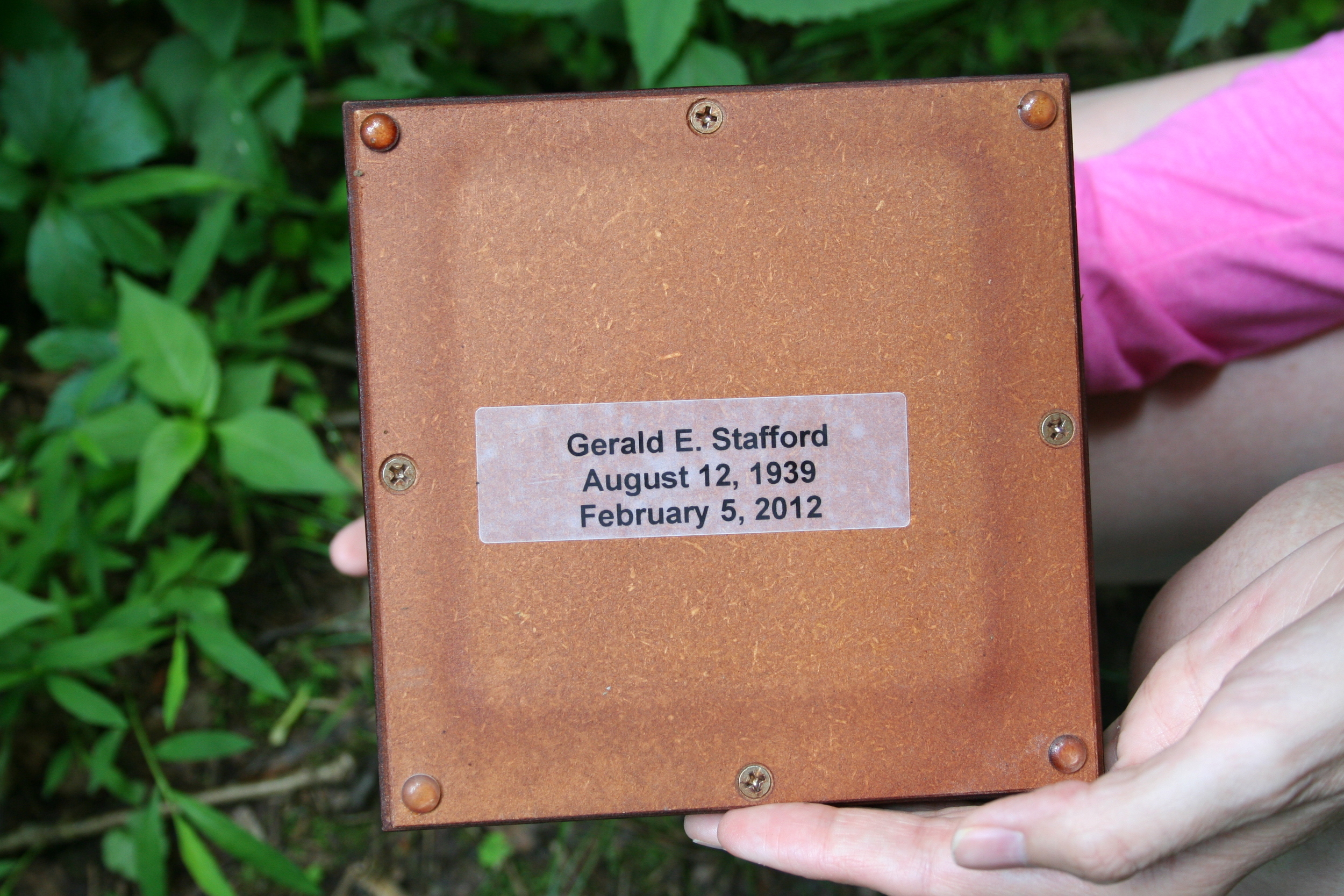Saying goodbye to my father on the Gettysburg Battlefield
/I love genealogy. I love history. I sat transfixed at The National Genealogical Society Conference at all the amazing information I learned about people's lives. But as a family historian, I have to admit something with a slight bit of embarrassment: I really don't like military history. Other historians crave stories of battles, strategies, and wartime tactics, but even the thought of a short game of Battleship makes me run the other direction.
My father at the beginning of his professorship at Shippensburg University.
But not my father. My father loved the military. He loved the Civil War, delighted in talking about World War II airplanes, and I suspect even felt a bit of disappointment at not making the draft into the Vietnam War because he was a college student. My sister and I would roll our eyes every time he waxed poetic discussing the Battle of Normandy or went off on a tangent about General Patton. Battles and war history weighed down his bookshelves, and he enjoyed many of those books again and again.
My father passed away on February 5, 2012. Since he wasn't married, my sister and I had to take care of many of the arrangements that come when a loved one declares you next of kin.
The only document my father gave to my sister and I stated two things: he didn't want to be kept alive by machines if he became incapacitated, and after he died, he would like to be cremated and have his ashes scattered on a beach. All of which initially seemed straightforward, and we wanted to do the best we could to honor his wishes. But as I looked into the logistics of the two basic things he requested, the whole process of carrying out his wishes became more complicated.
First, I wanted to make sure my sister and I carried out the scattering responsibly. I wanted to make sure we had a private and meaningful time when we laid my father to rest. But I also was concerned about etiquette. Is it legal to scatter ashes? Is it littering? Would we be breaking any laws?
Let me begin by saying the whole processing of scattering a loved one's remains is more than a little confusing. Every state can pose different regulations, but Pennsylvania and Maryland (two states I researched) both have no state laws regulating where you can dispose of remains. Almost every site and organization I came across in my research agrees that cremated human remains (called "cremains") are not toxic and pose no threat. However, certain guidelines should be followed in particular areas. For instance, the Environmental Protection Agency (EPA) mandates if a person's ashes are scattered at sea, they must be done so at three nautical miles from the shore and in water 600 feet deep. An article in the Baltimore Sun from 1999 says the Maryland State Board of Morticians "suggests that people ought not leave their loved ones' ashes on other people's property, in lakes and streams, or scattered over public places like parks and beaches." And although not illegal, mourners need to use common sense when scattering. Apparently, scattering ashes has become so common at Disneyland that ride operators are schooled on how to handle such issues. (Pirates of the Caribbean and the Haunted Mansion tend to be popular places.) And a man in Philadelphia was fined $100 and sentenced to community service for scattering his mother's (a Philadelphia Eagles fan) ashes on Lincoln Financial Field during a game.
So after all this confusion, I finally found an idea and answer on where to lay my father to rest: Gettysburg. His love of military history, the joy he had in studying the Civil War. Although federal land, Gettysburg will allow you to scatter your loved one's ashes if you obtain a permit in advance. The superintendent's office couldn't have been more helpful, and the secretary even expedited our request. And although I couldn't honor his initial request of a beach, I felt I finally found a responsible and meaningful way of laying my father to rest.


So on a warm Saturday on Culp's Hill away from the tourist's and public, my sister and I said goodbye to my father as the sun shone through the trees and fragrant honeysuckle bushes. And we felt my father would have been happy.



